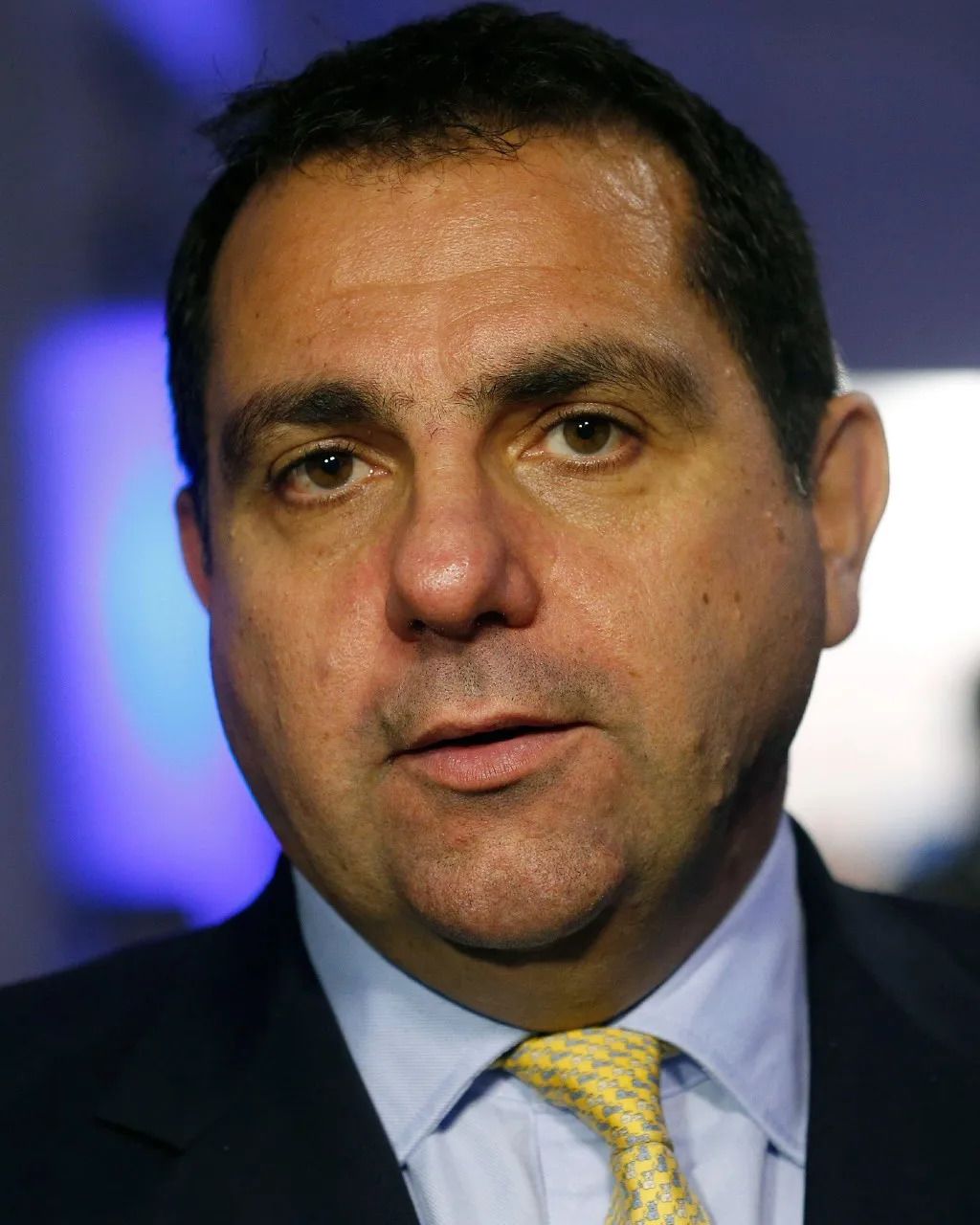
The complicated battle over unconscious-bias training
Starbucks and Google have been doing it. So have Sephora and Papa John’s. The UK’s Civil Service will no longer be taking part, while the Labour Party has been criticised for doing it in 20-minute chunks.
What these organisations have in common is that they’ve all introduced some form of unconscious-bias training, which educates people about the knee-jerk preconceptions they hold and how these beliefs may affect their actions.
But while well-intentioned, there’s mixed evidence that unconscious-bias training works. If they’re not carefully designed, training sessions may become eye-roll-inducing obligations, and some high-profile organisations have controversially dropped the programmes. But before we throw the baby out with the bathwater, it’s important to ask: What, if anything, should replace unconscious-bias training?
What is unconscious bias training?
Unconscious bias refers to the deep-seated prejudices we all absorb due to living in deeply unequal societies. Unconscious or implicit bias can lead to instinctive assumptions that a nurse must be a woman or an engineer must be a man, that an Asian woman won’t make a good leader, or that a black man will be an aggressive competitor. (In contrast, explicit bias leads someone to deliberately and wilfully discriminate against others.) Unconscious bias can be present even in people who genuinely believe they’re committed to equality; it’s harder to spot and root out than obvious discrimination.
But that doesn’t mean unconscious bias is insignificant. This under-the-surface form of bias can affect health and life in dramatic ways. For example, many medical professionals in the US believe that black patients are less susceptible to pain, and less likely to comply with medical advice than white patients. The quick-fire judgements of police officers are also very fraught; some research suggests that US police instinctively see darker faces as being more criminal. There are also lots of examples of unconscious bias at the recruitment stage. Hiring managers may gravitate to candidates who are similar to them, assume that male candidates are more competent, or see a ‘black-sounding’ name on an application, and instinctively associate that person with aggression.
 Unconscious bias can have significant implications in the medical arena, research has shown
Unconscious bias can have significant implications in the medical arena, research has shown
As the Black Lives Matter movement has driven demand for reforms, many organisations have considered adopting unconscious-bias training to address their roles in perpetuating racism and inequality. This kind of training seeks to make participants aware of their biases, in a blame-free manner.
The training can take many forms, in-person or online. You might take some form of implicit-association test, in which you’re presented with a quickfire series of images, and have to make rapid judgements of them, e.g. ‘black’, ‘white’, ‘good’, ‘bad’. You might attend a presentation about how biases affect people from stigmatised groups, and the ubiquity of such biases. You might roleplay as a hiring manager, to consider how differently you evaluate mock candidates from different groups. And you might participate in workshops that suggest strategies for overcoming bias, for instance through repeated exposure to counter-stereotypes.
Together with other forms of diversity training, unconscious bias training has become a massive industry. McKinsey estimated in 2017 that each year about $8bn (£5.8bn) was spent on diversity training just in the US.
Why are some organisations rejecting it?
According to Fatima Tresh, a social and organisational psychologist who works for the UK diversity consultancy Delta Alpha Psi, there’s been a rapid rise and fall of such training. In 2020, even as organisations have grappled with their anti-racism responsibilities, there was a distinct trend of workplaces moving away from unconscious bias training.
The UK’s Civil Service scrapped this training late in 2020, and urged other public-sector organisations to do the same. The parliamentary statement drew on damning research from the Nudge Unit (a behavioural research company that advises the UK government and other organisations) arguing that implicit bias training had little impact on behaviours or long-term attitudes. For instance, such training had had little effect on the representation of women in management.
 KPMG's Bill Michael had to resign after his comments on unconscious bias sparked a staff backlash
KPMG's Bill Michael had to resign after his comments on unconscious bias sparked a staff backlash
Private companies have also experienced conflict over this issue. KPMG is one of many large firms providing unconscious bias training to its employees, which it’s been rolling out since 2014. In an online meeting made public in February, KPMG’s UK chair, Bill Michael, called the concept of unconscious bias “complete and utter crap”, adding: “Because after every single unconscious bias training that has ever been done, nothing’s ever improved.” His comments (on Covid-19 as well as bias training) led to an outcry from staff and others, after which Michael apologised and resigned.
Tresh believes that the backlash against unconscious bias training stems from the attitude that “it’s a tick-box exercise: if everybody in the organisation just attends this e-learning module or quick training session, that will fix all of our problems or will show that we’re not a biased or discriminatory organisation”. Employees may sleepwalk their way through a training session that seems like just an item on a checklist to boost a company’s image. And a one-and-done approach to training can create the harmful impression that prejudice can be swiftly and neatly dispatched before returning to business as usual.
Moreover, although this kind of training may be well-intended, a significant body of research suggests that it has limited effects on changing beliefs in the long term, or improving representation of minority groups in the workplace. In the worst cases, the training can backfire – making participants feel that they don’t need to worry about bias anymore because they’ve done the training, or teaching them that such bias can never be eradicated.
It works only when you’re the most uncomfortable – Katerina Bezrukova
Yet Katerina Bezrukova, who researches management and organisational behaviour at the University at Buffalo, believes that the backlash isn’t a product of organisations tracking outcomes (all too often, they don’t). She believes it’s partly because such training makes people uncomfortable – something that’s needed if it is going to succeed. “It works only when you’re the most uncomfortable,” she says. Confronting social differences and ingrained ways of thinking is challenging, even frightening. Bezrukova points out that “human nature is to take the easy way” – and the easy way here is to defensively reject challenging new information.
What’s the way forward?
The British government has been criticised for getting rid of a diversity programme without an alternative in place; the Civil Service says its new strategy, focusing on behavioural change rather than bias training, is not yet ready. Those formulating a new strategy should consider a number of factors that are associated with more effective inclusion programmes.
One is the importance of being clear and specific about the objectives of an inclusion programme. If unconscious bias training is designed solely to kick-start awareness raising, then it can do some good; indeed, awareness raising is the most common achievement.
But achieving behavioural change is harder. If a company wants to increase representation of minorities in senior management, then relying on bias training alone is likely to fail – and to give employees a sour experience of diversity initiatives. For concrete change, this training has to be part of an integrated process, and organisations need to be willing to invest in that longer-term process rather than the short fix of a one-off training session. A 30- or 60-minute training session can’t begin to compete with a lifetime of absorbed prejudice and structural inequalities, after all. A perfunctory session also sends a message to employees that an organisation isn’t taking bias seriously.
Certain elements of unconscious bias training are worth retaining if they are contributing to a longer-term, sustainable programme – Fatima Tresh
But longer training sessions aren’t enough. What’s key is continuity and embedding these within larger structural change. According to Chester Spell, who researches management at the Georgia Institute of Technology, this doesn’t have to be a costly proposition. “I don’t think it’s so much a matter of you have to spend massive amounts of dollars into this, instead of be something that’s ongoing… something that’s part of the company’s way of doing business.”
To change practices holding back minority groups, more concrete steps are needed. These could include reforming recruitment processes (for instance, rethinking language on job adverts that evokes stereotypically male traits, or removing photos, names and mentions of age from job applications). Mentoring is particularly useful for underrepresented groups. “Certain elements of unconscious bias training are worth retaining if they are contributing to a longer-term, sustainable programme,” says Tresh.
And although it may seem thuddingly obvious, diversity breeds more diversity. Talking to varied groups of people reduces bias, for police officers and office workers alike. In the short term, the pandemic has limited opportunities for varied social interaction. But organisations that genuinely care about diversity need to think longer term, for instance assessing whether they’re supporting policies to desegregate the regions where they operate.
Ultimately, the politicised furore over unconscious bias training may be allowing for some convenient scapegoating of this particular approach, rather than more careful scrutiny of broad challenges.
“I think unconscious bias training is comparable to all types of diversity and inclusion training,” reflects Tresh. “The deeper you go, the more thoughtful you are in your design, the more impact it will have. And, so, I think the move away from unconscious bias training is helpful if we’re moving toward deeper learning and behaviour change. I think a move away from it is unhelpful if we’re just looking for other tick-box solutions to diversity and inclusion challenges.”










